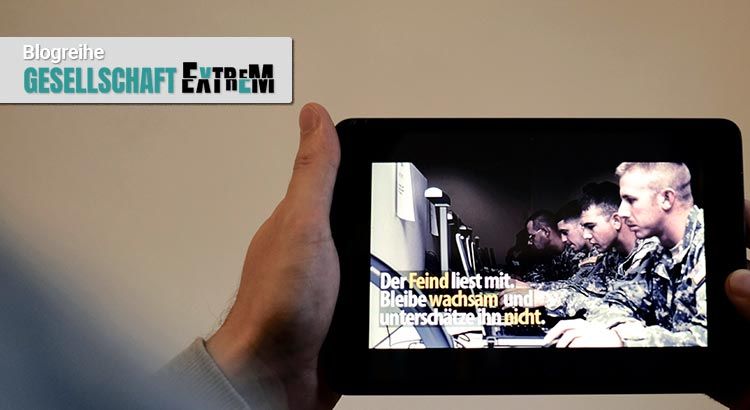Author: Manjana Sold
Manjana Sold ist wissenschaftliche Mitarbeiterin und Doktorandin im Programmbereich Transnationale Politik am PRIF. Ihr Forschungsfokus liegt auf der Rolle des Internets in Radikalisierungsprozessen, Mobilisierungsstrategien rechtsextremer und islamistischer Akteure und der Verbindung zwischen Radikalisierung im virtuellen und im reellen Raum. // Manjana Sold is a Doctoral Research in the Research Department Transnational Politics at PRIF. Her research focuses on the role of the internet in radicalization processes, mobilization strategies of right-wing extremist and Islamist actors and the connection between radicalization in online and offline sphere.
Der Nahostkonflikt stellt für Deutschland seit jeher eine besondere Herausforderung dar – nicht nur weil er mit geschichts- und migrationspolitischen Themen verknüpft wird, sondern auch weil er den Alltag vieler in Deutschland lebender Menschen berührt. Die jüngste Eskalation des Konflikts lässt tiefgreifende gesellschaftliche Bruchlinien sichtbar werden und fordert innergesellschaftlichen Zusammenhalt in mehrfacher Hinsicht heraus. Gleichzeitig kann der Konflikt jedoch auch als Chance für ihn fungieren. Wie sich der Nahostkonflikt künftig auf den Zusammenhalt in Deutschland niederschlagen wird, hängt maßgeblich vom politischen und gesellschaftlichen Umgang mit ihm sowie vom öffentlichen Diskurs über seine Folgen ab.
How can research on topics surrounding radicalization, extremism, and terrorism be safe and socially sustainable?
Research on extremism and related phenomena such as radicalization or terrorism is emotionally demanding and can even become dangerous, in part because it frequently means engaging with intense, and at times violent, societal conflict. The most recent escalation in the Israel-Palestine conflict is a poignant example of this, in which researchers specialized in antisemitism, Islamophobia, or Islamist and right-wing extremism are expected to keep up with fast-paced developments while simultaneously navigating the emotional impact of unfolding violence. This blog post highlights the difficulties researchers face in this field and proposes suggestions for addressing these challenges at the institutional and structural levels.
Counter-narratives – curse or blessing?
Taking stock of the increased spread of extremist narratives – especially in social media – the search for appropriate counter-measures intensifies. Consequently, the formulation and dissemination of so-called counter-narratives is often discussed as one possible approach to weaken extremist influence. While there are good reasons in favor of counter-narratives, they also come with risks and uncertainties. This article outlines essential pros and cons for their use in social media and provides insights into the current state of research on the effects of counter-narratives. Finally, it makes a proposal for a balanced approach: Counter-narratives may not be the only cure for extremism, but can serve as an effective tool for prevention and de-radicalization.
The Amalgamation of Virtuality and Reality in Radicalisation Processes
Virtuality has long since become an integral part of the world we live in today. It is thus not surprising that the virtual world is also used by those already radicalised and those who are in the midst of a radicalisation process. Accordingly, recent years have seen an increase in research that is particularly interested in the online component of radicalisation processes. Although the majority of researchers agree that there is no pure online radicalisation and that real-world contacts are always an important part of the process, research often continues to be one-sided. This posts calls for a change of focus by considering both spheres as equal components to the process and by examining their interactions. Findings from online case studies stemming from social media profiles of Salafist and right-wing individuals illustrate the amalgamation of online and offline radicalisation.
The Coronavirus as a Means to an End: Extremist Reinterpretations of the Pandemic
Various aspects of society and everyday life have become affected by the clampdown on the Coronavirus pandemic and the restrictions enforced to prevent it from spreading. While the spread of COVID-19 continues to be fought and researched under extreme pressure, many uncertainties remain regarding its origin and the social, political and economic consequences. These uncertainties are easily exploited by extremists such as right-wing and Islamist extremists. The spread of the Coronavirus is thus accompanied by the propagation of extremists’ discourses. Within a short period of time, they reach thousands of people – not only but especially via social media.
Online- oder Offline-Radikalisierung – oder doch ein Mix?
Immer häufiger ist bei ExtremistInnen die Rede von einer „Online-Radikalisierung“: Das Internet wird immer wieder als wichtiger Faktor in Radikalisierungsprozessen genannt. Dennoch ist über die Interaktion zwischen virtueller und realer Welt und die Wirkung von Online-Kommunikation in Radikalisierungsprozessen wenig bekannt. Dieser Beitrag beleuchtet kurz wesentliche Erkenntnisse hierzu und stellt auf Basis erster Erkenntnisse aus unserer Forschung drei Thesen zum Stellenwert von Online- und Offline-Faktoren in Radikalisierungsprozessen auf.




